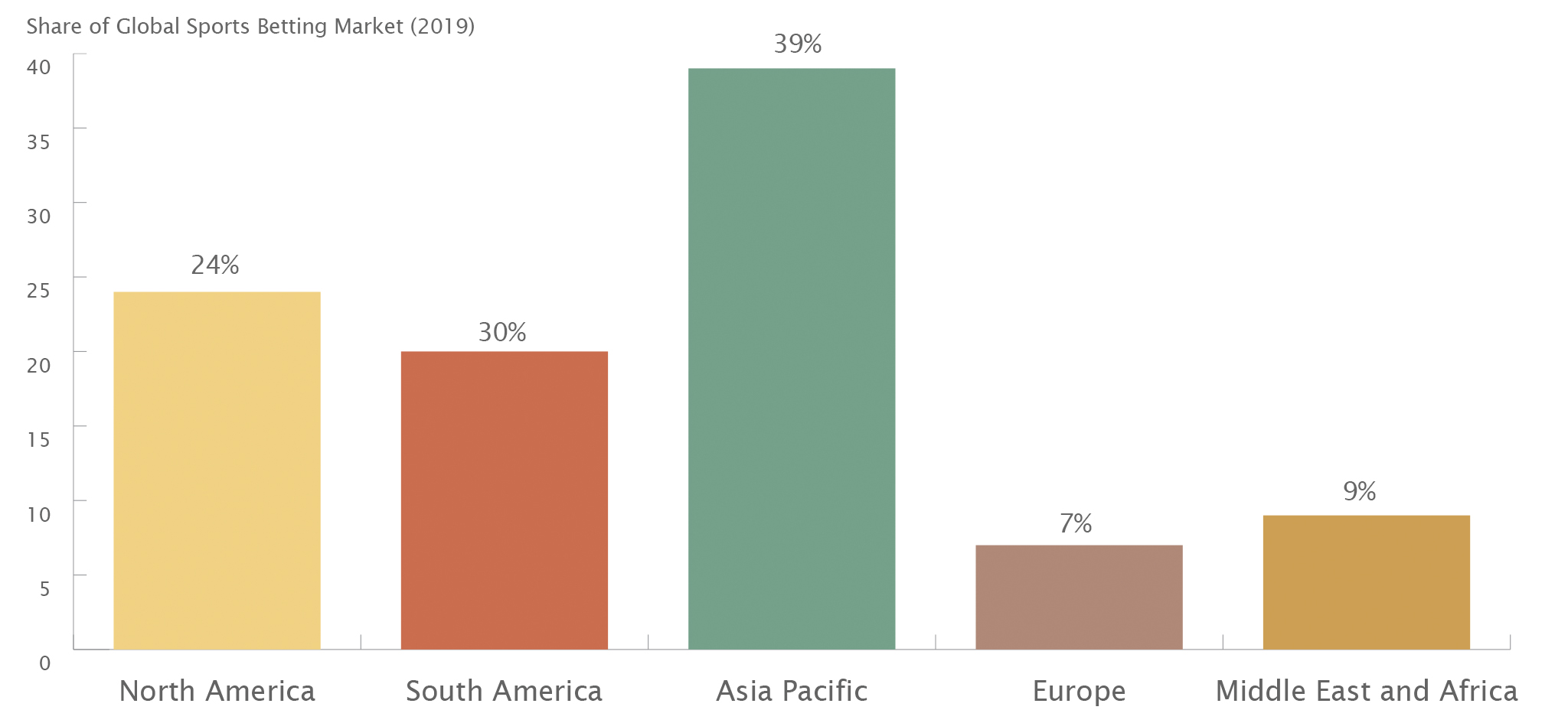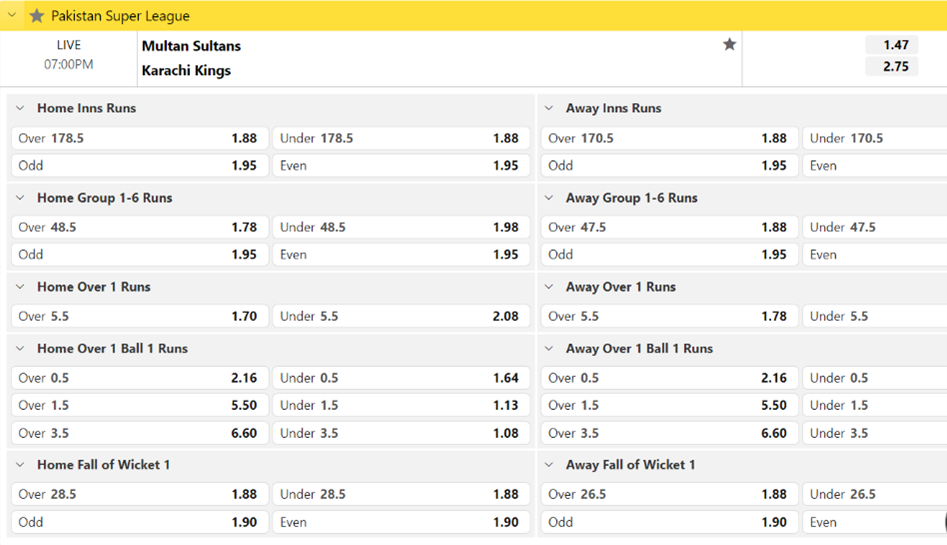Ordinarily, reports emerging about the Pakistan Super League signing a sponsorship deal with an international news agency would rarely register in the public eye. After all, this is what T20 leagues are all about—banks paying for glitzy opening ceremonies, umpires sponsored by housing societies, and logos of numerous partners emblazoned everywhere on the field. DafaNews, the international news agency in question, is no different. So why is this sponsorship newsworthy? Well, for one, DafaNews is an Indian sports news website, so it was bound to ruffle some feathers in Pakistan. But secondly, and more interestingly, is the context behind this website.
The link to DafaNews’ Facebook page is currently broken. It has been for some time now. For any other news website in India, an inaccessible Facebook page would be a cause for urgent concern, as the country possesses Facebook’s largest user base in the world. But DafaNews is no ordinary news website. To understand why, it is first essential to grasp the context of global sports betting.
The DafaNews logo can be seen on advertising hoardings encompassing the field at a PSL match

Source: Pakistan Super League, YouTube.com
Understanding the global sports betting industry
In 2002, a private company was founded by the name of The AsianLogic Group. AsianLogic is also the parent company of Dafabet, an online sports betting company created in 2004, which primarily operates in the Asia Pacific region, but has a massive global presence. The sports teams sponsored by Dafabet include the Scottish football giants Celtic, Spanish La Liga club Cadiz, and numerous English cricket counties such as Sussex, Leicestershire, and Durham.
Betting companies sponsor sports teams to gain visibility for their brand, hoping to convert at least some fans into paying customers. Indeed, out of 20 teams in the English Premier League, the most watched football league in the world, nine have betting companies as their title sponsors displayed front and centre on their shirts.
Sports betting is a booming industry. Globally, the sports betting market is valued at around USD 100 billion. In the next five to seven years, it is expected to grow at a pace of around 10%, and nearly double in size. Within the industry however, trends are changing. As growth slows in the European market, the area identified as possessing the highest potential for growth is the Asia Pacific region.
The Asia Pacific region is already the largest market in the global sports betting industry, and is expected to grow faster than any other region in the next five years

Source: TechNavio, MP Analysis
The subcontinent context
Within the Asia Pacific, countries with large populations such as China and India, and to a lesser extent Pakistan, are key target markets for sports betting companies. But officially, sports betting is illegal in both Pakistan and India, except for some very narrow exceptions. This prohibition was codified in the two countries through the Public Gambling Act of 1867. In Pakistan, this was further reaffirmed through the Prevention of Gambling Act 1977.
Despite that, in both Pakistan and India, the betting industry isn’t just existing, it is flourishing. In India, estimates of the value of its illegal betting market range from USD 40 billion to USD 150 billion, potentially bigger than the entire global legal betting market. In Pakistan, a 2010 AP investigation reported that bookmakers collect between USD 20-30,000 in bets on a single Pakistan T20 game from Lahore alone. As recently as the past fortnight, 23 bookmakers were arrested in Lahore for arranging bets on the ongoing PSL.
With sports betting so popular in the subcontinent, it is no surprise that online betting companies want to get in on the act. Even if betting officially remains illegal in both countries, it is very easy for potential customers to create accounts on their websites, and place bets through foreign bank accounts, e-wallets and even cryptocurrencies.
The question that still remains, however, is what does any of this have to do with DafaNews?
The art of advertising banned products
Since betting is officially illegal in Pakistan and India, the betting companies that simply slap their logos onto sports jerseys just can’t do the same in the subcontinent. News websites, however, face no such restrictions. And so, it just happened to be the case that in 2019, YouTube, Twitter and Instagram accounts were created for a news website named DafaNews India. There is no publicly available information on who owns DafaNews, but its logo is remarkably similar to that of Dafabet. And until recently, its homepage also reportedly contained links to bet on matches through Dafabet.
(L-R) The logos of DafaNews and Dafabet
Source: in.Dafanews.com, Dafabet.com
Currently, DafaNews India sponsors or partners ten different Indian sports teams, ranging from the Chennai Braves in the T10 cricket league, to the Haryana Steelers in the Pro Kabbadi League, to Mumbai City FC, a football team that plays in the Indian Super League and is part of the global City Football Group, which includes Manchester City. Many of these teams have the Dafa logo displayed prominently on their shirts.
This is not a new occurrence in India. While alcohol and tobacco are legal in many states in the country, their advertising is not. So, over the years, companies have found ever more innovative ways to sell their products without falling foul of the rules. Imperial Blue whiskey officially advertises music CDs, Kingfisher beer promotes packaged water, while McDowell’s rum markets its club soda. This is a phenomenon referred to as “surrogate ads”, whereby companies prohibited from promoting their primary product simply advertise another secondary product to raise their overall visibility.
In the case of the Pakistan Super League, while its sponsorship is tied to DafaNews, is it a mere coincidence that one can also place bets on PSL matches through Dafabet?
Betting odds for a PSL match between Multan Sultans and Karachi Kings

Source: Dafabet.com
The future of sports betting
While DafaNews sponsoring PSL has attracted controversy, it is worth noting that legalising sports betting may in fact be the best way forward. According to a new report by the UN Office on Drugs and Crime, illegal sports betting is worth USD 1.7 trillion annually and is often used by criminals to launder money. Other experts have similarly noted that the lack of paper trails in illegal betting have made match-fixing rife in Pakistan and India. By contrast, in legal gambling regimes such as the UK, bookmakers have early warning systems which can prevent a “fix” and alert the authorities to any suspicious activity, as was the case in a recent English Premier League game involving Arsenal.
In India, a report published by the Law Commission for the country’s Supreme Court came to a similar conclusion, stating that legalising and regulating betting would generate vast revenue, check the influence of organised crime cartels, and curb money laundering. Ultimately, however, it left the final decision up to the national parliament and state legislatures, and betting still remains largely illegal in India today.
Legalising sports betting would not be an endorsement of the activity, and the industry would still require regulation to ensure that vulnerable populations are protected from its harms, of which there are many. However, victims of sports betting are already suffering in Pakistan, just behind closed doors. Legalising the activity would bring this issue out into the open. In that respect, DafaNews sponsoring PSL may unintentionally end up kickstarting an important national discussion.
Note: TransGroup, partners of DafaNews, issued the following statement after the Pakistan Cricket Board approached them for clarification following speculation that its partner was promoting betting/gambling through its website:
“DafaNews is a fast growing online news portal, which operates through digital app only. DafaNews has successfully sponsored other cricket events in the Middle East, while strictly abiding by the law of the land as well as the terms of the agreement.
We contacted DafaNews to clarify their position on betting and they categorically stated and provided us documents showing that DafaNews is strictly a news website and are not engaged in any betting business. However, they also admitted that inadvertently and due to a technical oversight, the link to a betting website remained enabled on the opening day of the event, which was disabled after the first match.
On behalf of DafaNews, TransGroup also offers its regrets to the Pakistan Cricket Board and Pakistan cricket for any misunderstanding.”

